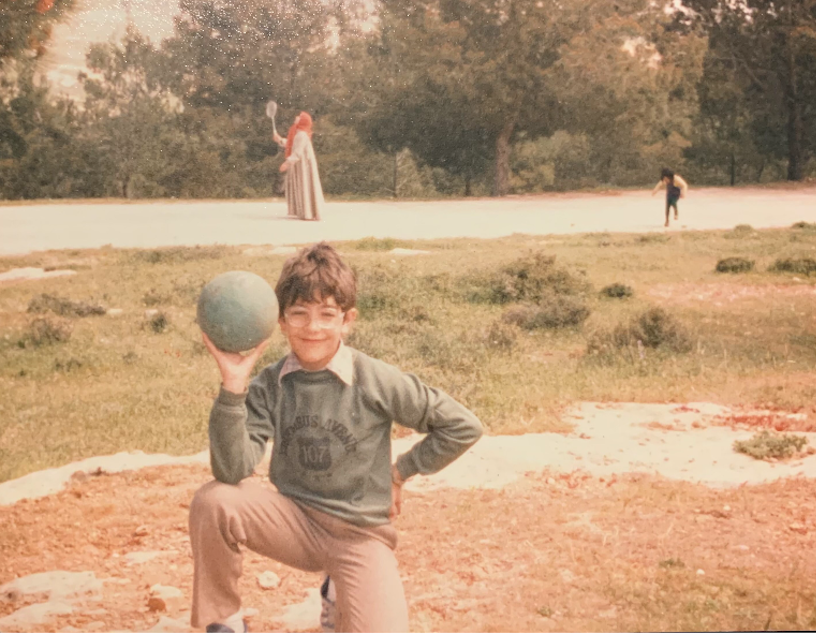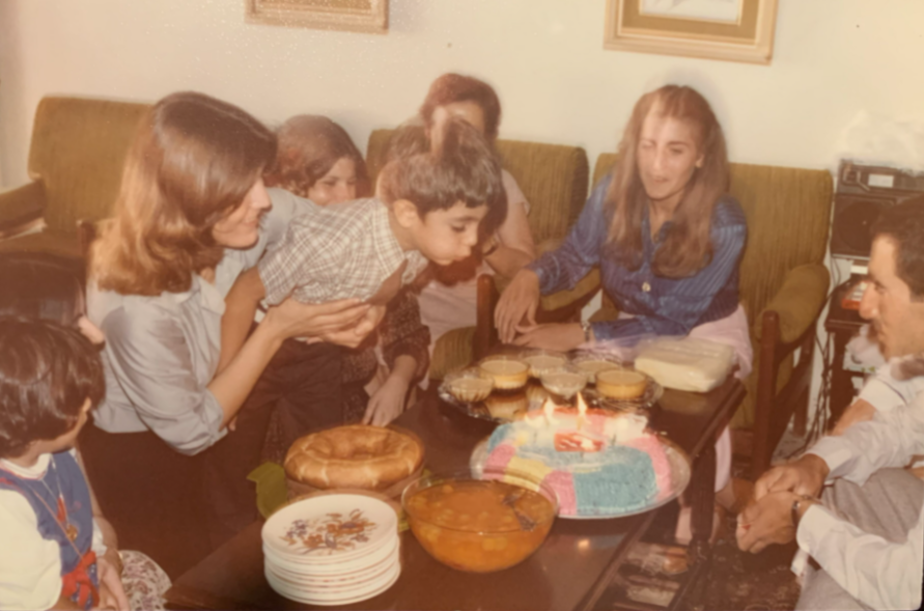'I somehow erased my Palestinian identity for the life I have now in Seattle'

In 1992 in Beirut, I was on a three-way phone call with an American DJ and an Israeli heavy metal musician.
We had been introduced by a French music journalist who was touring the Middle East in search of Middle Eastern heavy metal bands and radio stations. (I had a part-time gig at a heavy metal station while attending the American University of Beirut.)
The American DJ orchestrated this phone call to see if love of music could transcend hate. I was 18 at the time, alone in a studio apartment that I shared with a roommate. It was after midnight, and it was the first time I had ever talked to an Israeli, let alone a Jew. I was afraid, nervous, and unsure whether my phone was tapped – if it was, I could be in deep shit with the Lebanese government, or any of the militias, for speaking to someone in Israel. This was two years after the civil war, so paranoia was high. But my deep belief in humanity and goodness overwhelmed my fear, and I decided to take that call.
For over an hour, the three of us talked about music, whether Metallica had sold out, and the greatest front man of all time. (I thought it was Axl Rose.) Before hanging up, we acknowledged how dangerous this call was, but how determined we were to change the narrative of the decades-long struggle between Palestinians and Israelis.
I don’t remember the names of the people I talked to that night. But I remember the deep happiness I felt. We had transcended the hate we were taught and spoken of a better future.
That was a brief moment in time between three individuals. What is happening today in Palestine and Israel is not about individuals, but about systems. Yes, Hamas is a reprehensible organization. Yes, rockets fired into Israel is an act of war that should be condemned. (I hate that I have to note these caveats, but it’s the only way an average person who doesn’t know much about that what is happening will continue to listen.)
Sponsored
The reality is that one side is an occupier, and the other side is occupied, and has been for the past 73 years. This conflict is simply not equal. One side suffers more than the other. One side has power, and sympathy and support of the world. The other side does not.
Every time this conflict escalates, it feels like most of the world doesn’t care about us. I hear a few people say, “Palestinian Lives Matter.” Is it any wonder that there is solidarity between Black folks and Palestinians? We both know what it’s like to be on the receiving side of an oppressive system.
And yet, few people I have fought for, or even know, have said a word to me about what is going on in Palestine and Israel. As I considered that, this thought came to me: I have a great life. I have a good job. A great family. I live in a beautiful city. But in times like these, I wonder about the trade I made nearly 27 years ago when I moved the U.S.
My family came from a village near Jaffa called Abasieh. Like thousands of Palestinians, they were forced out of their homes in 1948, and ended up in a refugee camp in the West Bank. In 1967, when the Six-Day War started, they packed up as many belongings as they could, and fled in the dead of night to Amman, Jordan, where I was born and raised.

Sponsored
In Jordan, we were Palestinians. But in moving to the U.S. when I was 20, I somehow erased my Palestinian identity for the life I have now. I wonder sometimes if that trade was worth it. I am a Palestinian. I am a human being worthy of love, respect, and empathy. I am also an American with a wonderful life, free of occupation, daily humiliation, and death. Therein lies the guilt.
Why do I have this wonderful life, while so many of my people do not? It’s hard to reconcile that there is simply no justice in this world. And for a non-believer like me, it’s even harder to believe that there is not a wonderful afterlife filled with justice and beauty.
I am conflicted, hurt, and resigned. This is painful. But not nearly as painful as what my people are going through in Palestine. Maybe someday, we will see some semblance of justice. But I doubt it. And that’s a terrible thought. But not everything can have a happy Hollywood ending.
The other day I saw a picture of a little Palestinian girl standing in front of the rubble of a destroyed building in Gaza clutching a stuffed toy. That picture broke my heart. I have a 7-year-old daughter. She speaks with an American accent, plays T-Ball, and is happy as can be. I wonder, what is the difference between her, and that girl in Gaza? Pure dumb luck. And that’s the hardest part.
If you have feedback on this story, please click on the feedback button.
Sponsored
Zaki Hamid is the director of Community Engagement at KUOW Public Radio.




